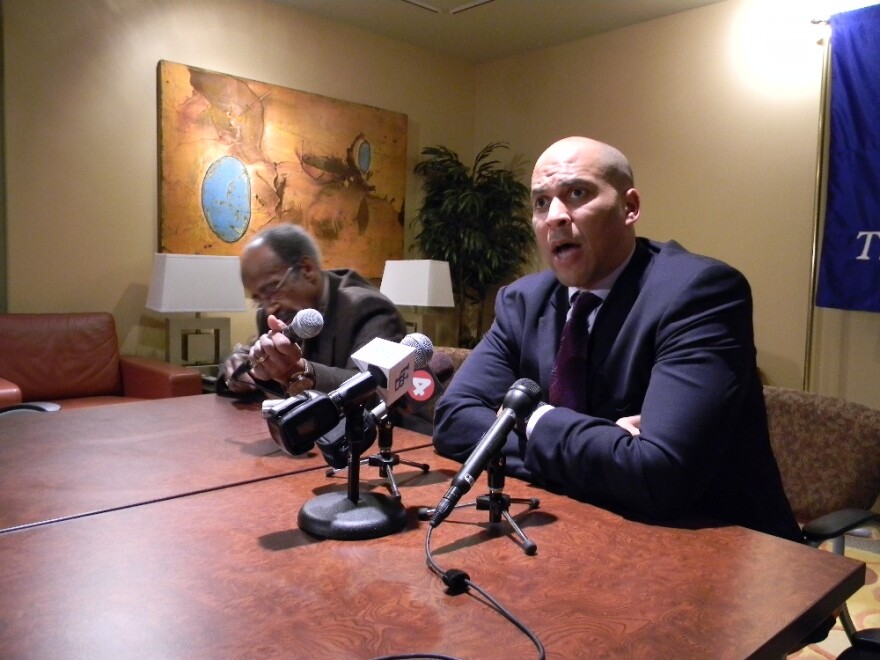Newark Mayor Cory Booker has earned accolades and national attention for his ability to attract employers and cut his city's budget, all while dramatically lowering Newark's high crime rate.
In a visit to Buffalo on Wednesday, Booker drew comparisons between the two cities, especially in terms of the difficulty of creating employment after decades of decline.
Luring Verizon: a case study
When Verizon flirted with building a data center in the Buffalo area, state and local entities offered the company hundreds of millions of dollars in incentives.
When Verizon walked away, some wondered aloud: What does it take to attract jobs to the area?
Booker says trying to convince employers to move to a depressed area without indiscriminately giving away taxpayer dollars is a common struggle these days.
"You've got to be really strategic and the bottom line has to work out," Booker says. "If you're throwing money at jobs, I just think it has to balance out on the other end - that you're going to get the economic benefit that's commensurate, or other benefits to your quality of life that are going to be the same."
Booker says Rust Belt cities "just have to pull together and strategize. We don't want to be in a race to the bottom in expending our public treasury in trying to attract jobs."
In order to avoid giving away the farm, Booker says former industrial powerhouses need to stress the inherent business advantages left over from the good old days.
In Buffalo's case, Booker says businesses will eventually take notice of the area's relatively high number of colleges (and their graduates), proximity to Canada and the thousands of parcels of available land.
Buffalo and Newark: "Brothers from another mother"
Booker says Buffalo and Newark are similar in many ways, as they've both lost jobs and population for much of the last half-century. But trends will shift in Buffalo's favor, Booker says, just like they have in Newark.
"I'm a big believer in cities, and there was a logic as to why they started," says Booker. "Maybe the old industrial base has gone. But remember: Cities like Buffalo existed even before the Industrial Revolution, for crying out loud. There's always something about a city with its infrastructure, with its history, its aggregation of arts, culture, education that can make it an attractive place to bring businesses," Booker says.
Citing the statistic that 80 percent of Americans now live in cities or suburbs, Booker says America's trend toward urbanization will eventually help Buffalo survive and grow.
That's despite recent Census figures showing the city losing another 10 percent of its population in the last decade. That's one of the fastest rates of decline in the country.
During his brief visit (he was in town for a speech at the University at Buffalo about the legacy of Martin Luther King, Jr.) Booker also discussed economic development with Buffalo Mayor Byron Brown.
"I got a chance to meet with [Brown] earlier today and I really think he's got a vision for everyday blocking and tackling, hitting singles and doubles," Booker says. "Occasionally you're going to hit a home run. But the game is going to be shifting more and more to American cities. And Buffalo is going to benefit, if not lead."




